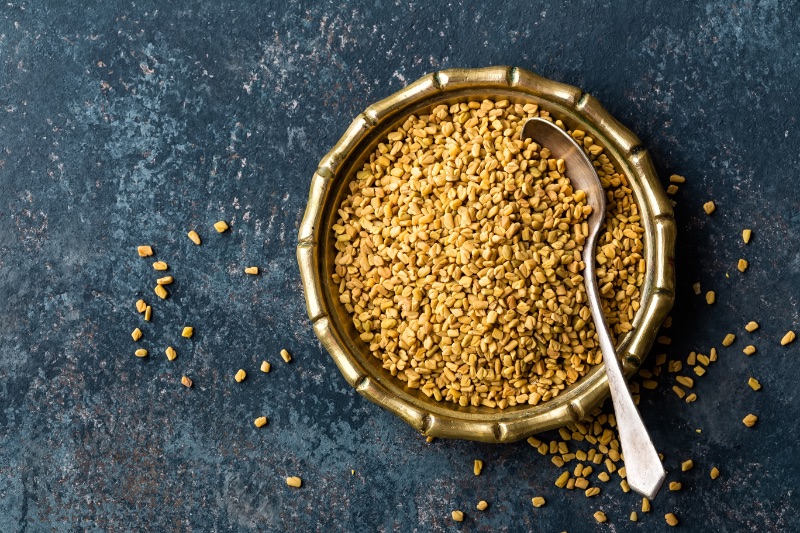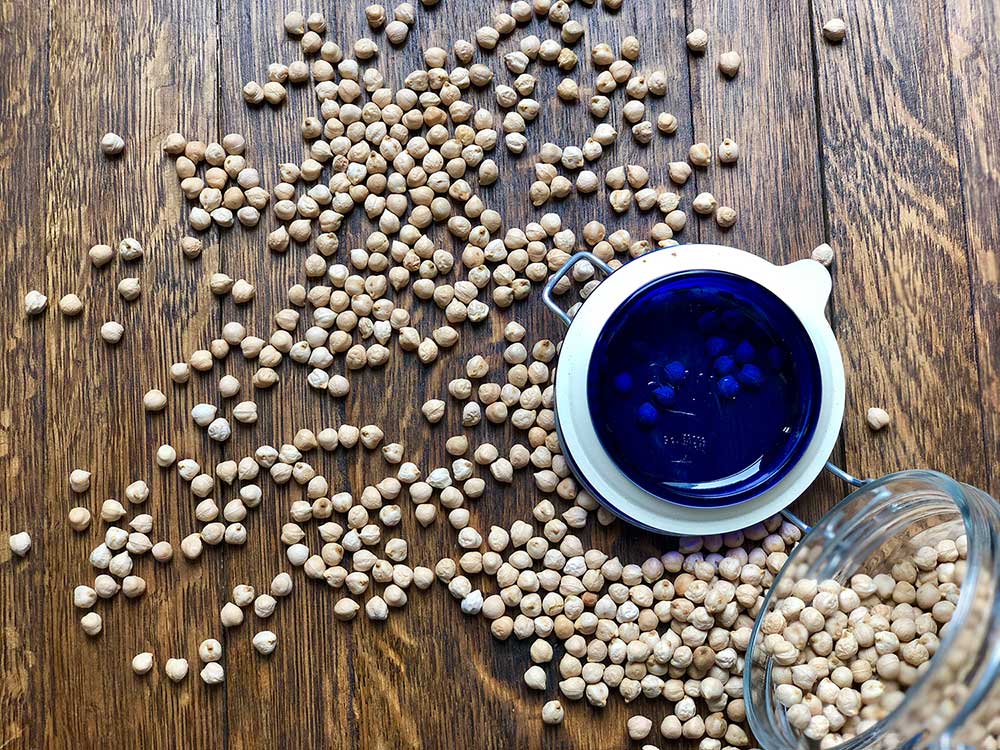If you consider fenugreek a spice cabinet underdog, you're missing out in a big way. “You can use fenugreek in every possible creation,” says chef Chintan Pandya of New York's Rahi and Adda. “In Indian food, in our herbal food, fenugreek is one of our key ingredients,”
Easy for him to say—the versatility of fenugreek can be regularly tapped when fresh leaves abound in Pandya's native Mumbai and throughout India. There, Pandya notes how fresh methi leaves are liberally folded into curries. They’re the star ingredient in the savory, rolled flatbread methi thepla, which is one of his favorite childhood snacks to the point that his mother still makes it for him. Dried fenugreek leaves (kasuri methi) make the smoky base of butter chicken. And, medicinally, fenugreek’s fiber, protein, and iron content are pushed in tea or supplement form.
But fenugreek isn’t readily grown in the United States. Fresh leaves are almost impossible to find here, and the frozen ones sold at Asian markets take a bit of looking for, too. So Pandya sympathizes with Americans' ignorance of the ingredient. “If you’re not seeing fenugreek, you’re not going to explore it – even people most enthusiastic about cooking,” he says.
Challenge accepted.
Pandya describes fenugreek’s ideal flavor as one that starts out bitter but ends with a rolling, lingering sweetness. He promises that it adds depth to neutral main ingredients, like potatoes and lentils, and that it balances pungently spicy or earthy flavors, making it so common in curries. And that it’s a go-to for any dish needing a touch of bitter to balance out sweet or sour.
But the problem remains that when we do spot fenugreek, it’s most often in dried seed form.
Soak the seeds overnight
“On their own, they're hard as a rock and very bitter,” Pandya warns. And, unlike other spices, toasting them alone won’t help. So, to soften both texture and bitter flavor, Pandya says to soak the seeds overnight. Then, toast and incorporate them with other spices like you would clove or cardamom.
When done in this order, you’re guaranteed a subtle layer of both bitterness and sweetness that can help round out pickling mixes, meat marinades, and slow-cooked sauces of all sorts.

Find frozen fenugreek leaves
Even better than the seeds are frozen fenugreek leaves, which he promises are worth the market hunt. (They’re easy enough to find online, too.) Applied directly to soups and curry dishes, they can be thought of interchangeably with any bitter leafy green. Or they make for a powerful flavoring element in slow-cooked dishes with gamey meats like goat and lamb.
When blanched and flash-fried, their concentrated flavor helps finish sauces and quick dishes that could benefit from bitterness, too. For a play on the comfort dish aloo methi, boil or fry potatoes, then add them to a pan with butter, a liberal amount of fenugreek leaves, and salt. “I add a little ginger and green chilies, and maybe a little cumin, but obviously season to your liking,” Pandya says of the side dish’s adaptability. The same process works equally well with lentil dishes, too.
Use crushed dried fenugreek leaves in sauces
Dried leaves are perfect for whenever you want to season fatty bases like oil, yogurt, or cream. For a barbecued fish marinade, combine crushed dried leaves with some mustard, yogurt, and fish paste, slather all over your whole fish, then grill or broil. For a play on butter chicken, blend fenugreek into a tomato gravy: “Fenugreek’s slight bitterness compliments it,” Pandya says of the classic contrast. “You know there’s something apart from sweetness in there, but most people don’t know it’s methi.”
For an “incredible” dinner roll, incorporate around ten grams of dried fenugreek leaves per one kilogram of flour mix. Then pair with salads that balance sweet and fresh flavors, or those heavy on the meats and cheese. “A fenugreek roll with a capris salad is phenomenal,” Pandya says.
The only place to steer clear? Dessert. “I’ve tried to experiment, and it’s been disastrous.”
This article was written by Jacqueline Raposo from Food & Wine and was legally licensed through the NewsCred publisher network. Please direct all licensing questions to legal@newscred.com.








